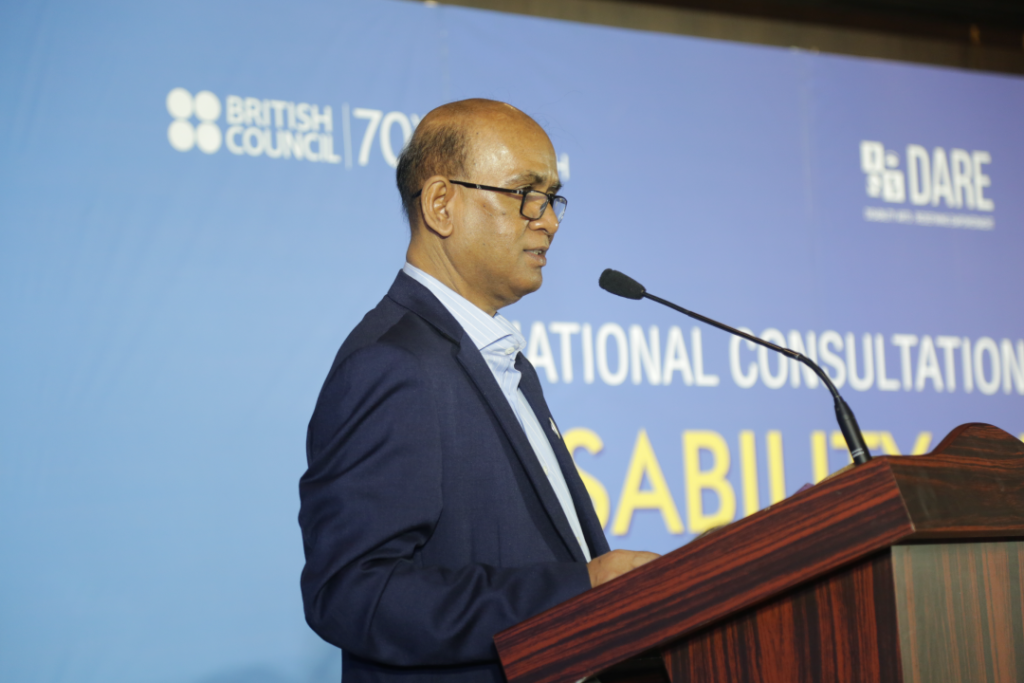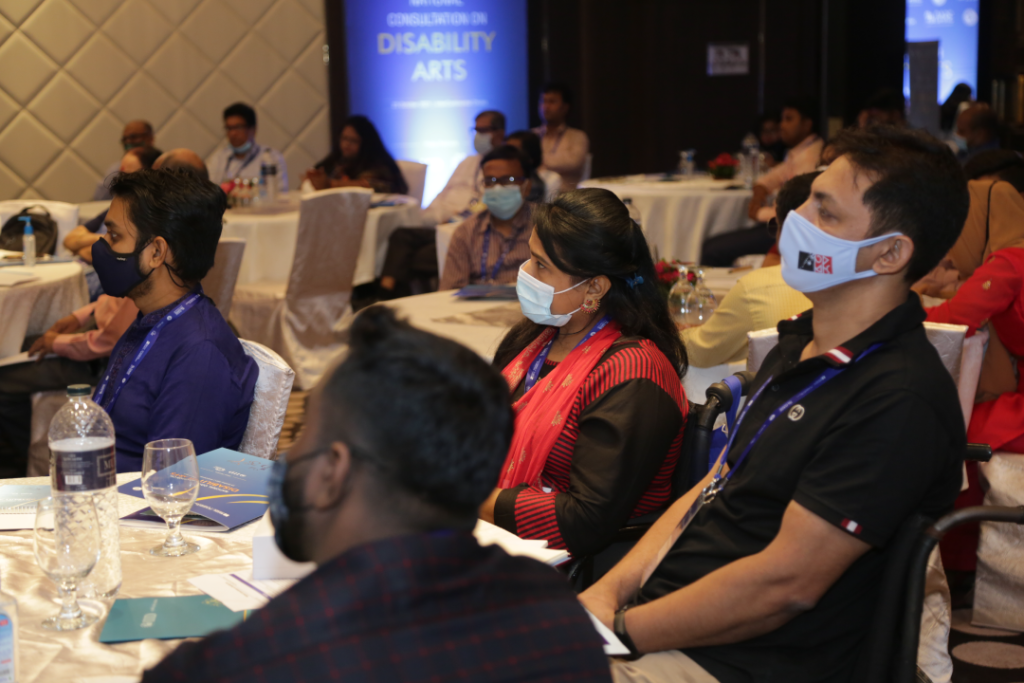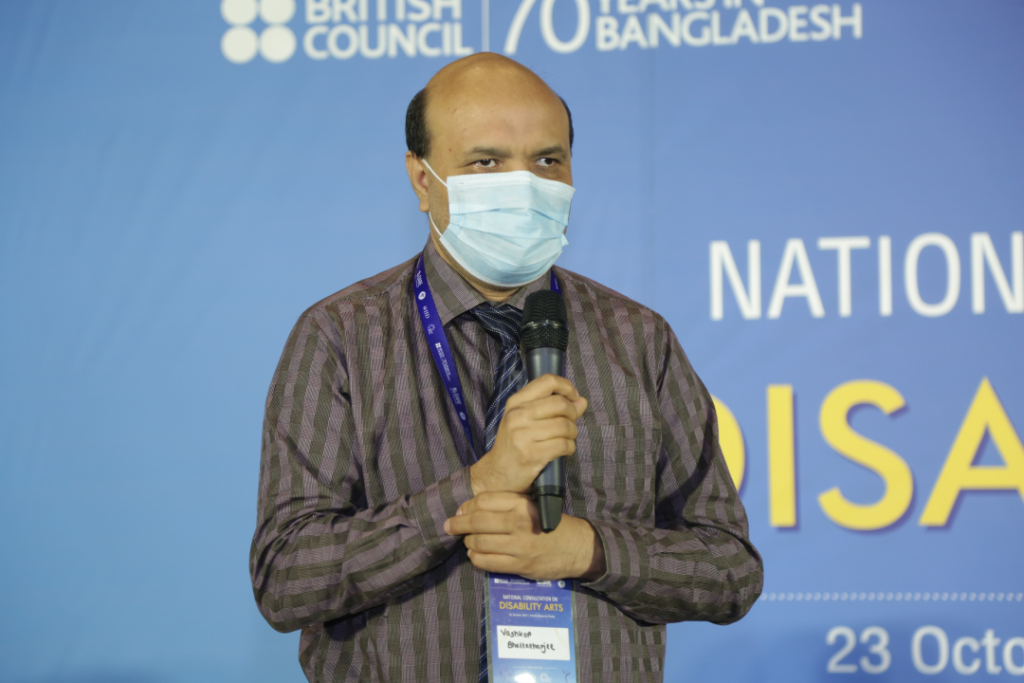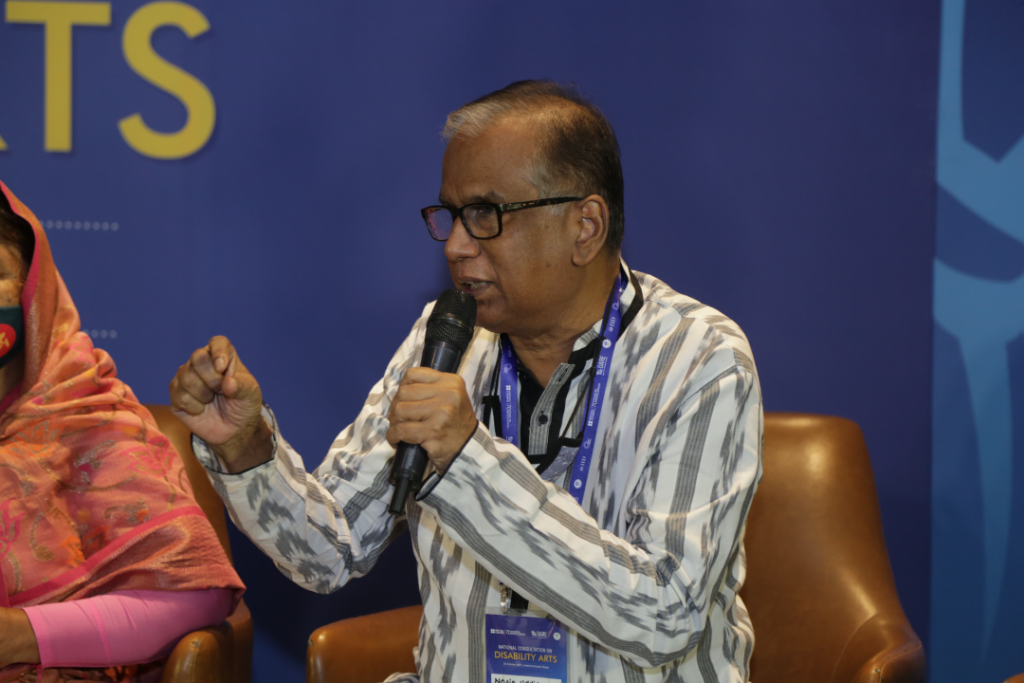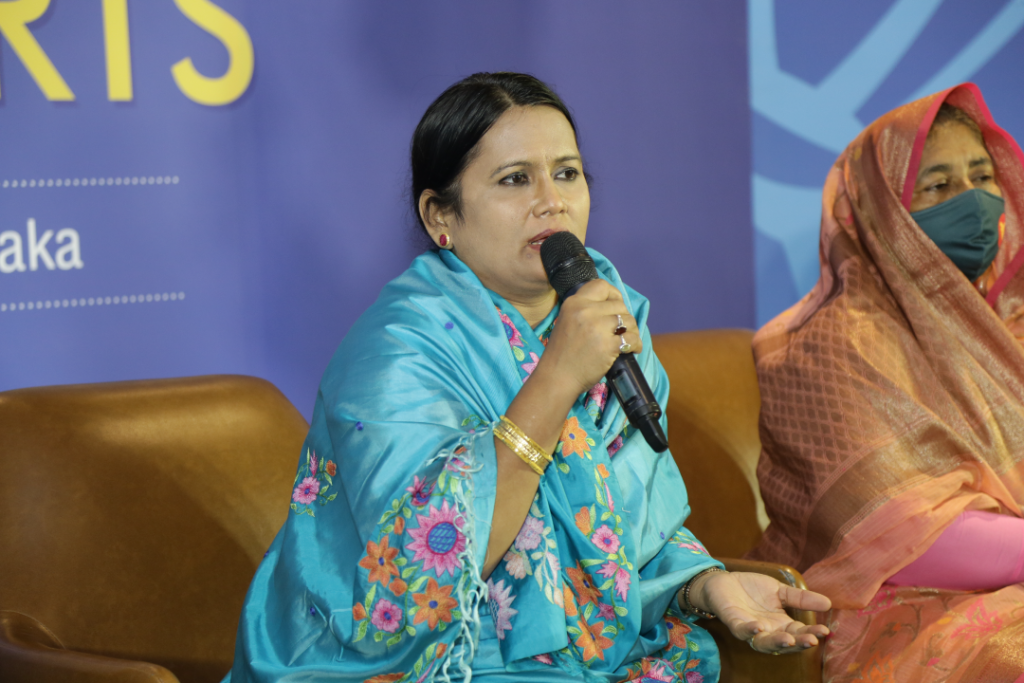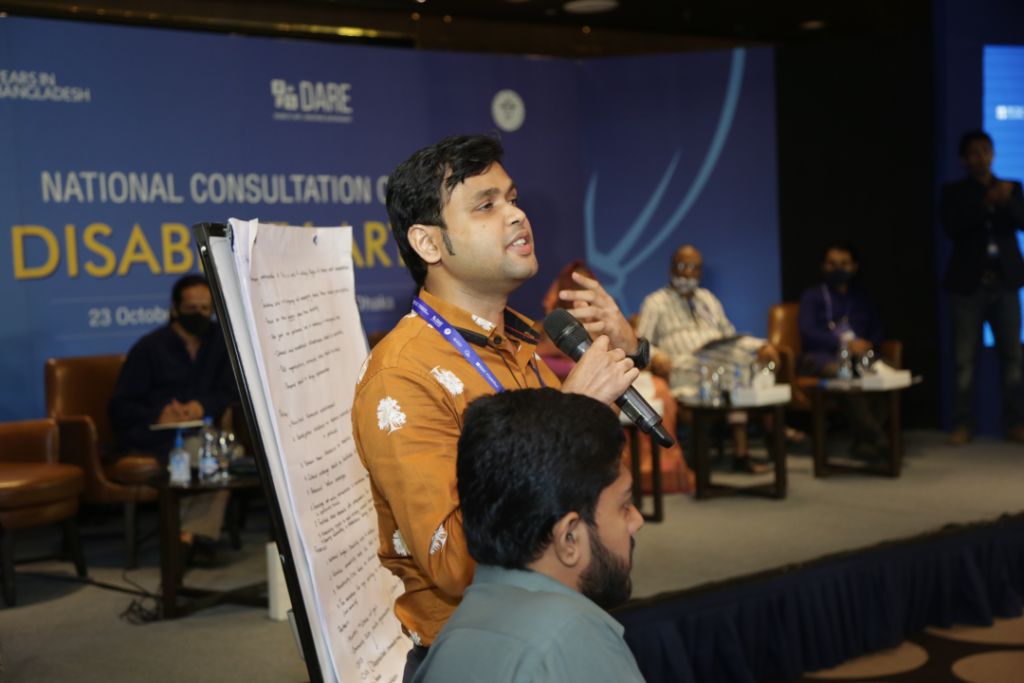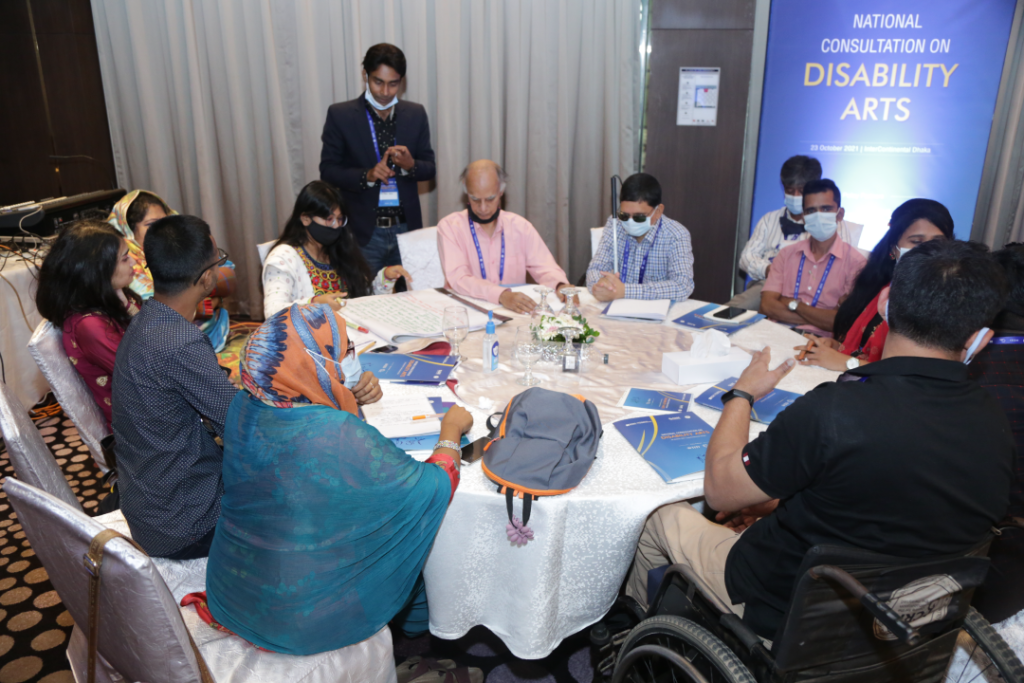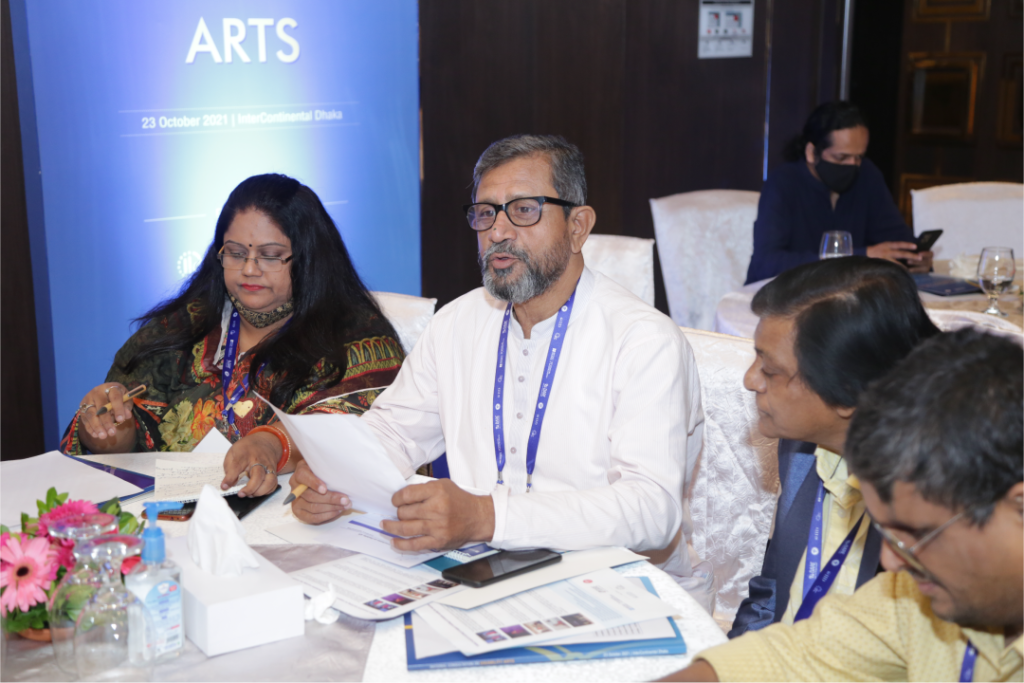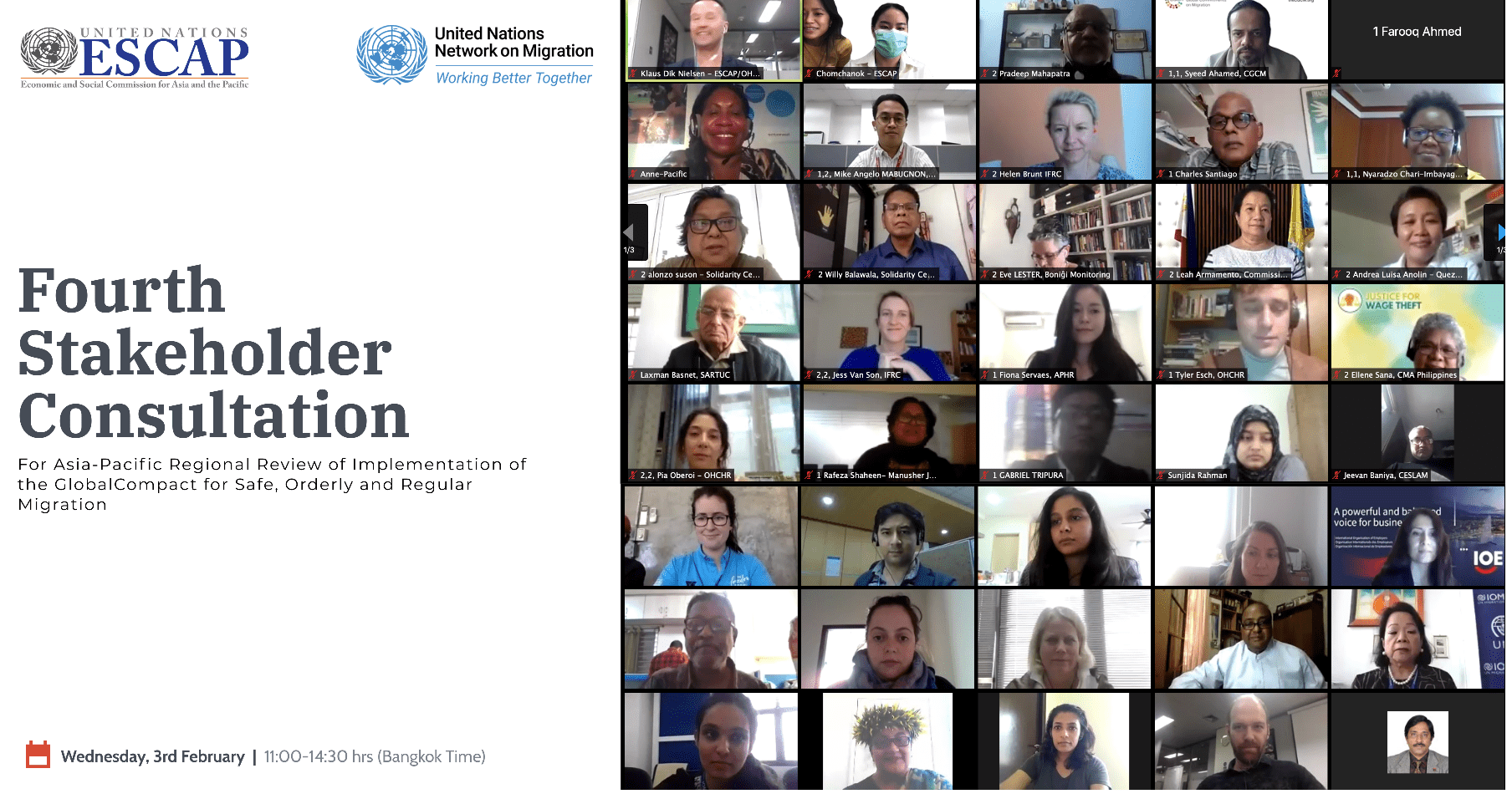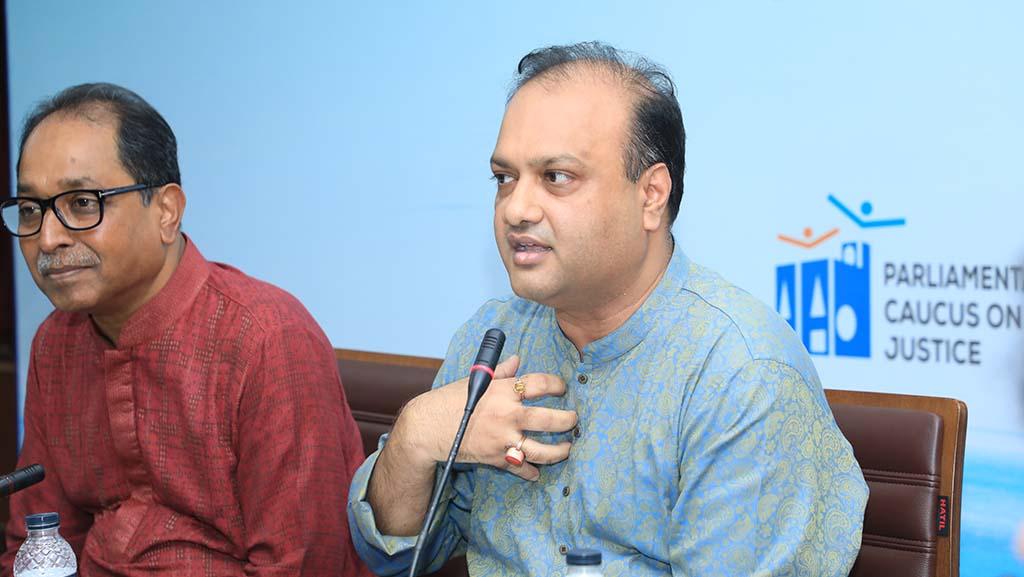Disability arts can ignite a social revolution by challenging the dominant perception of disability and by bringing persons of disabilities closer to the wider society.
Historically disability has been stigmatised in our society. Through disability arts, persons with disabilities can manifest what they can do, get the chance to tell their real stories and break out of the isolation that society imposes on them. Such revolutionary aspects of disability arts were discussed by the experts from arts and disability sectors in a consultation held on 23 October 2021.
The ‘National Consultation on Disability Arts’ was hosted by the British Council in partnership with Institute of Informatics and Development (IID) and Parliamentary Caucus on Social Justice. The consultation was a part of DARE (Disability Arts: Redefining Empowerment) initiative, a multi-year project of British Council in partnership with Dhaka Theatre, aimed at building the understanding and confidence amongst the disability, and arts sector in Bangladesh and bringing them together to bridge the gap between the disability sector and wider society.
During the discussions, Souradeep Dasgupta, Project Manager, Arts, British Council, pointed out how people with disabilities are left out of the arts because of lack of inclusivity and positive attitude towards them in the society. He explained how the British Council’s DARE initiative is working to build a more inclusive society by bringing persons with disabilities and the arts sector in Bangladesh together.
Syeed Ahamed, CEO of IID, pointed out the constitutional promise of establishing social justice for all citizens could not be actualised if the rights of persons with disabilities, the 7 percent of the country’s population, are not promoted. He mentioned that from previous consultations on promoting Disability Arts three main areas, financing, partnership and policy intervention, were identified and the consultation aimed to identify implementation strategies for these three areas in achieving the priorities for disability arts.
Vashkar Bhattacharjee, Program Manager, Young Power in Social Action (YPSA), urged for strong ministerial support for ensuring rights of persons with disabilities in accordance with major global and national commitments.
Muhammad Mushfiqul Wara, Country Director, CBM International – Bangladesh Country Coordination Office, pointed out any policy decision for persons with disability must be made after taking their voices and choices into account, so that their socio-economic realities are reflected in the policies.
Nasiruddin Yousuff, renowned film and theatre director and the co-founder of Dhaka Theatre stated disability arts, by bringing the realities of disability into light, can revolutionise society.
Md. Abul Mansur, Secretary, Ministry of Cultural Affairs, emphasised creating employment for persons with disabilities to make them self-independent. Highlighting the initiatives taken by the government, he assured that the Marrakesh VIP Treaty would be ratified soon.
Nahin Idris, Head of Arts, British Councils, drawing on his experience during execution of DARE project, stated a little reasonable adjustment goes a long way to make any initiative taken for persons with disabilities successful. He argued policy interventions are necessary to realise the impact of disability art in creating an inclusive society.
Md. Saiful Islam, Additional Secretary, Planning, Development and Law, Ministry of Social Welfare, urged for a holistic approach to ensure rights of the people living with disabilities through merging education, infrastructure and health sector as well as developing technology to support accessibility.
Referring to the constitutional right of all citizens being equal, Samsun Nahar, MP, member of the Parliamentary Caucus on Social Justice, stressed on strengthening the voices of persons of disabilities to bring forth their needs and claims before the policymakers. She recommended initiating awareness building programs starting from the grassroots.
Adiba Anjum Mita, MP, member of Parliamentary Caucus on Social Justice, mentioned the importance of increasing political participation of persons of disabilities to establish their rights. She pointed out the urgency of increasing the number of trained care givers and care houses to ensure comfort for persons with disabilities.
The event consisted of three sessions- two panel discussions and a breakout session in between. The closing panel discussion also included the presentations on the findings in the breakout session and open discussion between the panelists and the participants.
Among others, Mohua Paul, Access Bangladesh; Samiun Jahan, Dhaka Theatre; Mostafa Kamal Jatra, UTSA; Saidul Haq, BERDO; Jowaherul Islam Mamun, TWID Bangladesh; Dr. Harun-ur-Rashid, BPSS; Adv. Dilip Ghosh, BVIPS; Sanjay Ranjankar, Assistance for Blind Child; Hasiba Hasan Joya, SDSL; and Ashfaq-ul-Kabir, Tauri Foundation also spoke at the discussion. Sayema Chowdhury, disability activist, moderated the entire event.

